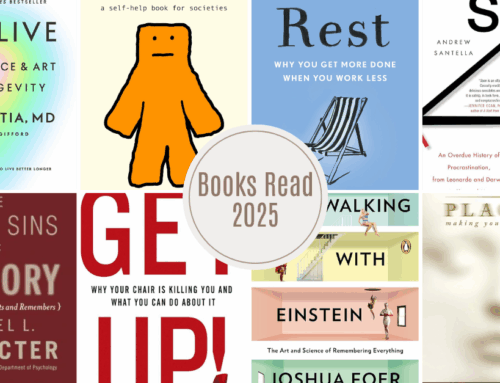 What’s Our Problem?: A Self-Help Book for Societies by Tim Urban
What’s Our Problem?: A Self-Help Book for Societies by Tim Urban
My rating: 5 of 5 stars
I discovered What’s Our Problem? while exploring the topic of procrastination for my consultancy business. I stumbled upon Tim Urban’s TED talk and was struck by the sincerity and clarity with which he approached the subject. Curious to learn more from him, I looked up his work and was delighted to find this book—a deep dive into politics, group behavior, and the state of modern discourse.
One of the most eye-opening insights from the book is the idea that our usual way of thinking about political views—left vs. right—is far too simplistic. Urban introduces an additional and crucial dimension: how we think. Are we operating with a higher mind—open, rational, and nuanced—or a primitive mind—reactive, tribal, and dogmatic? This second axis radically changes the way we interpret political messaging and group dynamics.
Unlike many opinion-heavy books, Urban grounds his arguments in solid research. The bibliography alone runs over 100 pages, which he decided not to print in the physical copy to keep costs down (thanks to the full-color illustrations). That transparency and effort to root ideas in data stood out to me.
The book isn’t just about politics—it’s about how human groups operate. We all belong to multiple groups: families, companies, communities, nations. Each of these has its own culture. And how individuals behave within those cultures—whether with integrity, courage, and reason, or with conformity and fear—determines the group’s overall moral and intellectual quality. It’s this collective behavior that shapes a group’s destiny.
While the U.S. political system is used as a case study, the frameworks Urban presents are universally applicable—be it to any other country, a workplace, or even a local community. His most powerful original metaphor, in my opinion, is the “illiberal staircase”—a step-by-step descent that societies can take from liberal values toward authoritarianism, often without realizing it. It’s a sobering but useful lens for understanding how public discourse can degrade.
What I especially appreciated were the illustrations and visual metaphors. They make complex ideas easier to grasp. The book feels like a thinker’s dream, packed with reusable mental models (30–40 by my count), many of which are curated from other great thinkers but cohesively brought together to tackle a pressing societal question.
I read books with open mind, and also, with required skepticism, and I found Urban’s tone remarkably fair. He’s a white, heterosexual male venturing into tricky topics like social justice, yet he handles them with admirable balance and care—something I didn’t expect but truly respected.
This book offered me a fresh perspective. I’m a long-time fan of The 7 Habits of Highly Effective People by Stephen Covey, which deals with personal behavior and interpersonal relationships. But What’s our problem? goes beyond the individual—it explores how groups behave, how cultures form, and how we can nudge collective mindsets in the right direction.
To everyone I talk to about the book, I half-jokingly say: “This should be taught in schools!” The concepts are that foundational. They deserve to be introduced early—at the formative stages of thinking—so that future citizens can grow up with the tools to think better and live more responsibly in a complex world.


